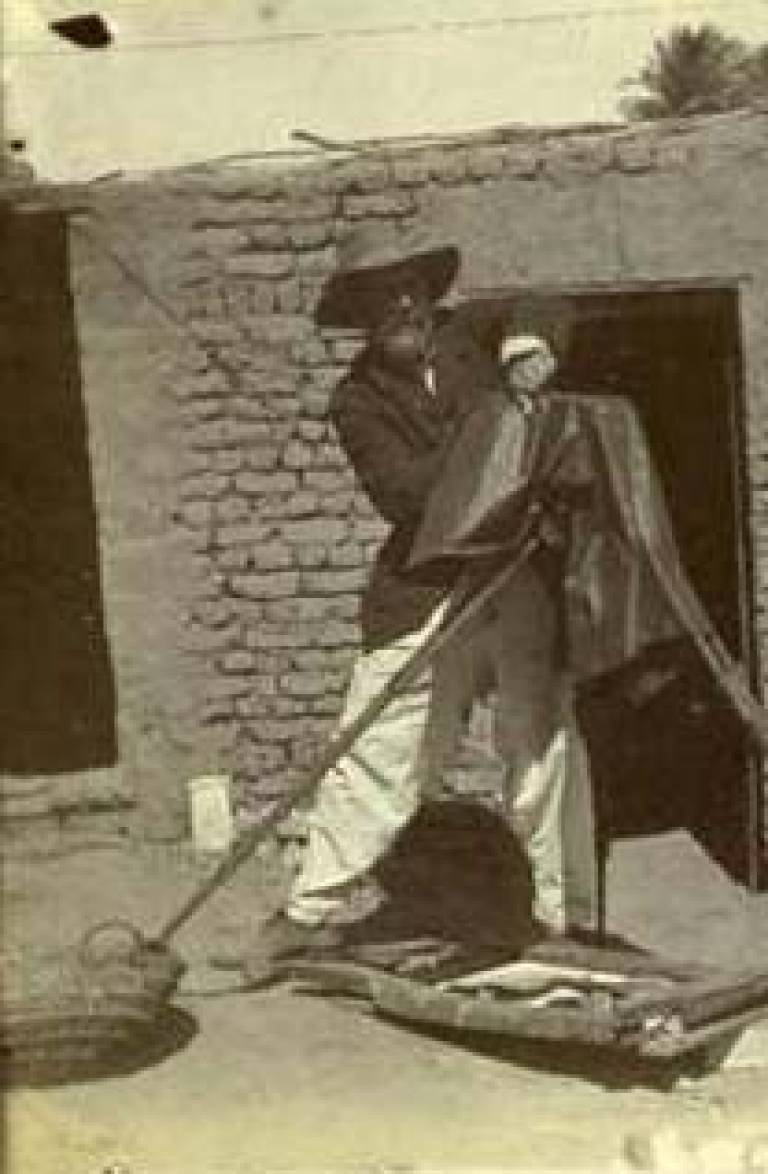UCL Institute of Archaeology celebrates 75 years
18 January 2012
This year marks the 75th anniversary of the UCL Institute of Archaeology (IOA).
 A number of events are planned to mark the anniversary, including panel discussions, exhibitions, outreach activities and experimental archaeology demonstrations.
A number of events are planned to mark the anniversary, including panel discussions, exhibitions, outreach activities and experimental archaeology demonstrations.
The IOA was formally opened in April 1937 at St John's Lodge in Regent's Park and the first Director was the prominent archaeologist and broadcaster, Sir Mortimer Wheeler. Since then, the IOA has grown from a small research institution to become one of the leading academic departments of archaeology in the UK and internationally. The Institute also held the 1943 'Conference on the Future of Archaeology' that set out plans for the new role of archaeology in building a post-war world.
"From its modest beginnings, the Institute has promoted a vision of archaeology that straddles the arts, humanities and sciences and takes the global view of the human past."
Dr Gabe Moshenska (UCL Institute of Archaeology)
Gordon Childe (Director 1946-1957) and the excavator of Jericho, Kathleen Kenyon (Acting Director during World War II), are notable members of the archaeology community who have headed the Institute.
Other early staff included founders of British and international archaeology, such as institute librarian Joan du Plat Taylor, who is considered one of the founders of underwater archaeology; Frederick Zeuner, one of the founders of quaternary studies and zooarchaeology; and Professor of Western Asiatic Archaeology Max Mallowan.
In 1957 the IOA moved to it's current location on Gordon Square. It became the first purpose-built archaeology department in the country - with a photographic studio, conservation labs, archaeological science labs and artefact stores.
The IOA is today the largest and one of the most highly regarded centres for archaeology, cultural heritage and museum studies in the UK. More than sixty research-active staff are engaged in high-quality research across five continents, and the degree programmes offer a variety of courses on a diverse range of topics, and wide-ranging fieldwork opportunities. The Institute also has links to heritage organisations, museums and archaeological societies, providing a unique research environment for staff, students and visitors.
Dr Gabe Moshenska from the Institute, explained: "In 1937, the opening of the Institute marked a coming of age for archaeology - for so long a hobby of the upper classes - and the emergence of a new class of skilled, professional archaeology graduates from around the world. From its modest beginnings, the Institute has promoted a vision of archaeology that straddles the arts, humanities and sciences and takes the global view of the human past. The 75th anniversary is an opportunity to honour the history of the department and to reflect on its future."
For further details of all events, please visit the link below.
Image: From UCL Petrie Museum Collection
 Close
Close

